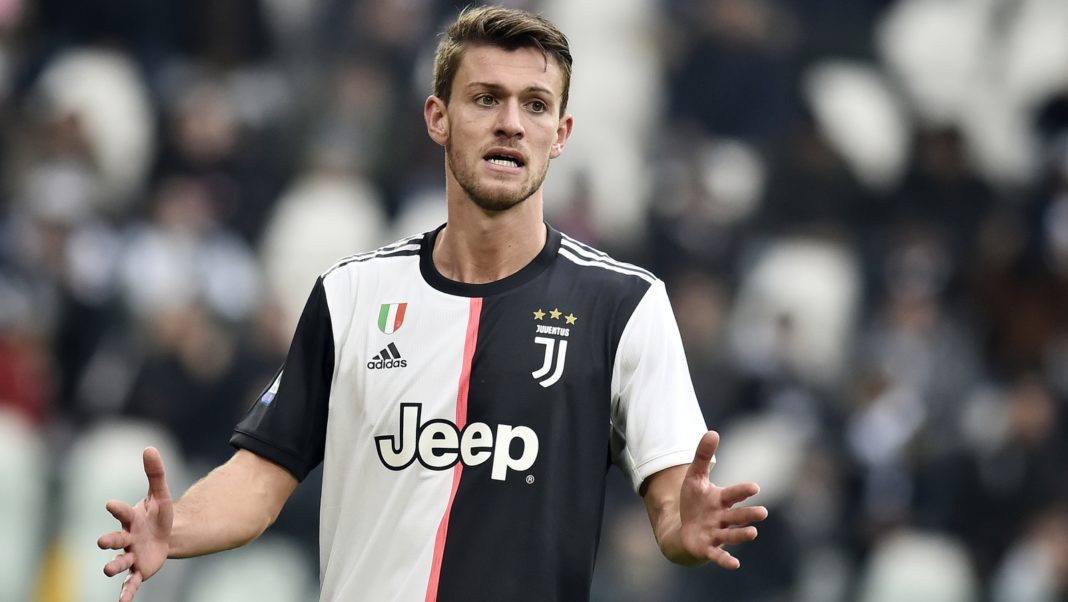The Italian team said Daniele Rugani’s diagnosis would mean a 14-day quarantine for him and his teammates, and could lead to transformative changes in the European soccer schedule.
A player for Juventus, the Italian soccer champion, has tested positive for Covid-19, the disease caused by the new coronavirus, the club announced Wednesday, a worrisome development for a sport — and a country — struggling to contain the outbreak.
The player, the 25-year-old defender Daniele Rugani, is believed to be the first athlete in Italy’s top division to test positive. The team said in a statement that Rugani was “currently asymptomatic,” but that the club was following isolation procedures required by law for him and anyone who has had contact with him.
Rugani is not the first player in Europe to test positive for the disease — a German team, Hannover 96, confirmed earlier on Wednesday that one of its players had tested positive and was in isolation — but the implications for Juventus, and for European soccer, could be far more severe.
Rugani was on the bench when Juventus played its title rival, Inter Milan, behind closed doors on Sunday, and his diagnosis means he, his teammates, his coaches and assorted staff members must be quarantined for 14 days. That will most likely make it impossible for Juventus to play its Champions League match against the French club Lyon on Tuesday, and the news could lead to a quarantine for Inter’s players and coaches as well.
The Italian soccer season was already in jeopardy. While Juventus was to be allowed to play its Champions League match without spectators, Italy has banned all domestic sports events until April 3, and the entire country is on a broad lockdown — with travel between regions restricted, and commerce and daily life disrupted. Italy is among the countries worst hit by the coronavirus, with more than 12,000 confirmed cases and more than 800 deaths.
Rugani’s diagnosis is likely to have ripple effects with even more teams; opponents who played against Juventus in recent weeks have already been notified. Rugani played against Brescia on Feb. 16 and Spal on Feb. 22, and was an unused substitute in the first game against Lyon in the Champions League and in Sunday’s match against Inter.
Inter’s Europa League game this week with Spain’s Getafe had already been postponed after the Spanish authorities barred the Italian team from entering the country. In England, Manchester City’s Premier League game against Arsenal was called off after Evangelos Marinakis, the owner of Greek team Olympiacos, which played Arsenal late last month, confirmed he had the virus.
Scheduling Concerns
With the coronavirus cutting a wide swath through the European soccer calendar, competition organizers have been discussing a path that might allow them to complete their seasons, crown league champions and determine which clubs will be relegated or promoted for next season.
The unprecedented disruptions have led to the possibility of solutions that have long been opposed by domestic leagues, including the prospect of playing Champions League and Europa League games on weekends. For years, domestic leagues have fiercely guarded those days for themselves, drawing a red line that European officials dared not cross.
As recently as last year, the European Club Association, a trade body that represents Europe’s top leagues, reacted with fury when it was suggested that some Champions League games should be played on Saturdays and Sundays as part of a reform of the competition.
“We will always protect our weekends,” the European Leagues deputy general secretary Alberto Colombo said last year when European soccer’s governing body, UEFA, and several top clubs first raised the possibility. “We will not allow European club competition to be played on weekends.”
In the current climate, though, and amid the need for practical solutions, such intransigence is likely to be tested. While discussions about the reforms are continuing, they have been usurped by more pressing concerns about finishing the current club seasons, which had been scheduled to end in May, in time for the quadrennial European championship.
Now, a working group that includes representatives from UEFA and a delegation from the leagues has been set up to exchange information about ways to play the growing backlog of games. The next official discussion is set for Thursday. Nothing is off the table, according to a person familiar with the discussions, including weekend European matches and eliminating home-and-away ties — replacing them with single-elimination matches at closed or neutral venues — in this year’s competition.
UEFA declined to comment on the talks, as did the European Club Association.
But at UEFA’s congress last week, when officials from Europe’s 55 nations met, the virus dominated discussions. UEFA’s secretary general, Theo Theodoridis, said at the meeting that the leagues and UEFA may need to be “flexible” in overcoming the calendar crunch.













![Hotstar Premium Cookies 2019 [*100% Working & Daily Updated*] Hotstar Premium Cookies 2019 [*100% Working & Daily Updated*]](https://tahav.com/wp-content/uploads/2019/11/Hotstar-Premium-Cookies-Free-100x70.jpg)



